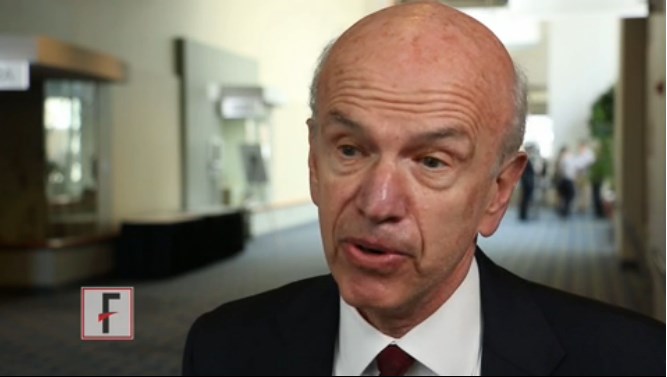User login
WASHINGTON – Adult patients and their doctors should decide together whether to treat a first unprovoked seizure, according to a new recommendation issued by the American Academy of Neurology and the American Epilepsy Society. But although treatment reduces the risk of a recurrent seizure by 35%, it doesn’t appear to change the eventual prognosis – and balancing the risks of seizure and the risks of antiepileptic drugs is not easy.
In video interviews at the annual meeting of the American Academy of Neurology, Dr. Allan Krumholz of the University of Maryland, Baltimore, who headed the guideline writing committee, reviews the data, while Dr. Jacqueline French, professor of neurology at New York University puts it in clinical perspective.
But will the recommendations change practice? Dr. Derek Chong, a practicing neurologist at New York University’s Langone Comprehensive Epilepsy Center, shares his own thoughts in a video interview.
The video associated with this article is no longer available on this site. Please view all of our videos on the MDedge YouTube channel
The video associated with this article is no longer available on this site. Please view all of our videos on the MDedge YouTube channel
The video associated with this article is no longer available on this site. Please view all of our videos on the MDedge YouTube channel
On Twitter @alz_gal
WASHINGTON – Adult patients and their doctors should decide together whether to treat a first unprovoked seizure, according to a new recommendation issued by the American Academy of Neurology and the American Epilepsy Society. But although treatment reduces the risk of a recurrent seizure by 35%, it doesn’t appear to change the eventual prognosis – and balancing the risks of seizure and the risks of antiepileptic drugs is not easy.
In video interviews at the annual meeting of the American Academy of Neurology, Dr. Allan Krumholz of the University of Maryland, Baltimore, who headed the guideline writing committee, reviews the data, while Dr. Jacqueline French, professor of neurology at New York University puts it in clinical perspective.
But will the recommendations change practice? Dr. Derek Chong, a practicing neurologist at New York University’s Langone Comprehensive Epilepsy Center, shares his own thoughts in a video interview.
The video associated with this article is no longer available on this site. Please view all of our videos on the MDedge YouTube channel
The video associated with this article is no longer available on this site. Please view all of our videos on the MDedge YouTube channel
The video associated with this article is no longer available on this site. Please view all of our videos on the MDedge YouTube channel
On Twitter @alz_gal
WASHINGTON – Adult patients and their doctors should decide together whether to treat a first unprovoked seizure, according to a new recommendation issued by the American Academy of Neurology and the American Epilepsy Society. But although treatment reduces the risk of a recurrent seizure by 35%, it doesn’t appear to change the eventual prognosis – and balancing the risks of seizure and the risks of antiepileptic drugs is not easy.
In video interviews at the annual meeting of the American Academy of Neurology, Dr. Allan Krumholz of the University of Maryland, Baltimore, who headed the guideline writing committee, reviews the data, while Dr. Jacqueline French, professor of neurology at New York University puts it in clinical perspective.
But will the recommendations change practice? Dr. Derek Chong, a practicing neurologist at New York University’s Langone Comprehensive Epilepsy Center, shares his own thoughts in a video interview.
The video associated with this article is no longer available on this site. Please view all of our videos on the MDedge YouTube channel
The video associated with this article is no longer available on this site. Please view all of our videos on the MDedge YouTube channel
The video associated with this article is no longer available on this site. Please view all of our videos on the MDedge YouTube channel
On Twitter @alz_gal
AT THE AAN 2015 ANNUAL MEETING
